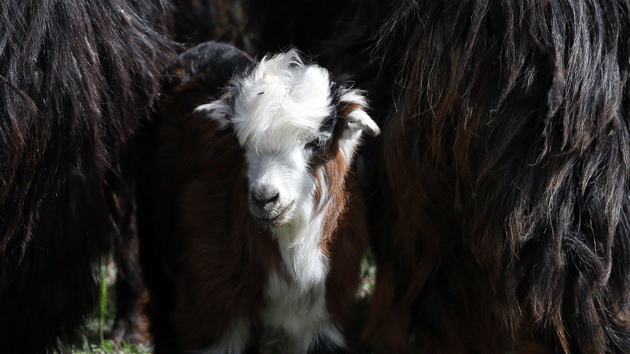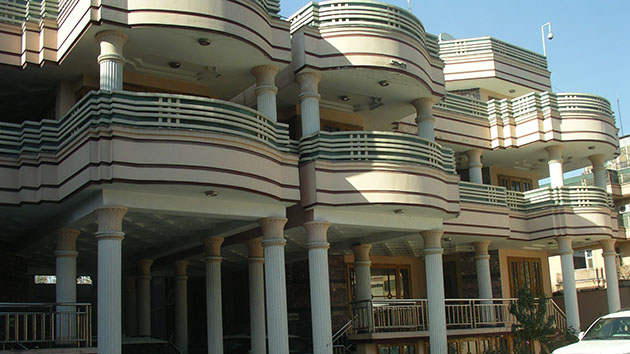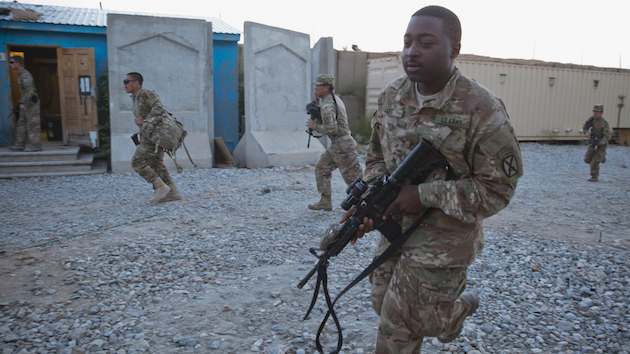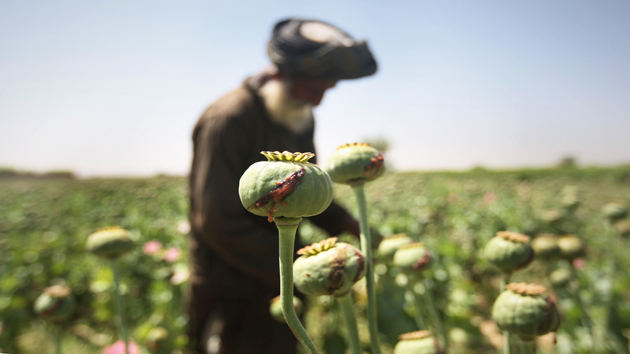
Here's looking at you, kid: A baby goat in Herat, Afghanistan.Massoud Hossaini/AP
The Pentagon airlifted Italian goats to Afghanistan as part of a failed $6 million project aimed at boosting the country’s cashmere industry.
That’s one of the latest findings from John Sopko, the special inspector general for Afghanistan reconstruction, who testified at a Senate hearing yesterday on the Defense Department’s efforts to boost the Afghan economy at a cost of more than $600 million. SIGAR, Sopko said, “has not been able to find credible evidence showing that TFBSO’s [Task Force for Business and Stability Operations] activities in Afghanistan produced the intended economic growth or stabilization outcomes that justified its creation.”
The Pentagon’s cashmere project entailed importing nine rare blond male goats from Italy, building a farm, and setting up a laboratory to certify the their wool. It’s possible the program created as many as 350 jobs. But according to Sopko, the Pentagon failed to track its spending, and the project’s status is unknown. It remains unclear whether or not the goats were eaten.
Sopko has detailed other examples of waste and unchecked spending in Afghanistan, including $150 million for private security and rented villas for the Pentagon’s business task force, a $47 million “Silicon Valley-type start-up incubator” that “did nothing,” according to the contractor implementing the project, and a $7.5 million project to increase the sales of hand-knotted Afghan carpets. The Pentagon’s business task force “claims to have created nearly 10,000 carpet weaving jobs through this program,” Sopko’s prepared testimony notes, “however our initial analysis has left us questioning the veracity of this figure.”
Sopko’s reports have been leaving lawmakers dumbfounded. At yesterday’s hearing, Sen. Claire McCaskill (D-Mo.) lambasted a $43 million natural gas station that could have been built for $500,000, calling it “dumb on its face.” She noted that the average Afghan earns less annually than it costs to convert a car to run on natural gas.









